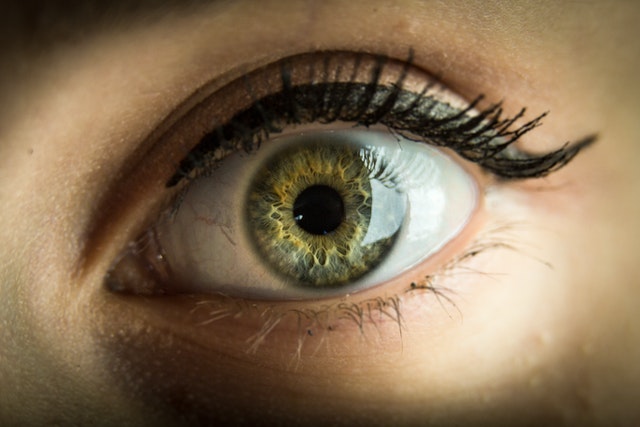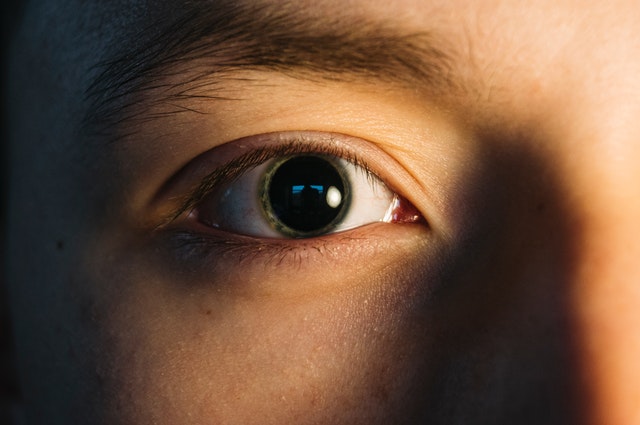
You look in the mirror and see that your dark circles are larger than usual in the center of your eyes. What’s going on?
Your pupils, or openings through which light enters your eye so you can see, are those dark circles. Pupils may dilate without any change in illumination from time to time.
This is referred to as mydriasis.
Most of the time, mydriasis is benign and not something you should worry about. It can, however, be a symptom of an underlying health condition that needs treatment.
Read also: What Happens When Your Oxygen Level Drops Too Low
What Causes Pupils to Dilate?
There are many reasons why your pupils may dilate. These includes:
A change in lighting conditions.
The process by which your pupils adjust to changes in lighting conditions is known as the pupillary reflex.
This reflex is controlled by the autonomic nervous system, which means that it happens automatically and does not require you to think about it.
The pupillary reflex is important because it helps to protect your eyes from sudden changes in light intensity.
When your pupils dilate, they let in more light, which can help you see better in low-light conditions.
Conversely, when your pupils constrict, they reduce the amount of light that enters your eyes, which can help to prevent damage from bright light.
The pupillary reflex is just one way that your body helps to protect your eyesight.
Medications
Pupil dilation is a common side effect of many medications.
The most common drugs that can cause pupil dilation are antihistamines, antidepressants, antipsychotics, and some heart medications.
Pupil dilation can also be caused by marijuana use. While pupil dilation is generally not harmful, it can cause blurred vision and light sensitivity.
In some cases, it can also lead to dizziness or nausea. If you experience any of these side effects, you should speak to your doctor.
They may be able to adjust your dose or prescribe a different medication.
Eye drop medications
Certain eye drops, such as those used to treat glaucoma can cause pupil dilation.
This is because the active ingredient in these eye drops, beta blockers, works by blocking the action of adrenaline. When adrenaline is blocked, the pupils dilate.
While this side effect is generally not harmful, it can cause blurred vision and light sensitivity. In some cases, it can also lead to dizziness or nausea.
If you experience any of these side effects, you should speak to your doctor. They may be able to adjust your dose or prescribe a different medication.
Diseases and conditions
Pupil dilation can also be a symptom of an underlying health condition. Some of the most common conditions that can cause pupil dilation are:
- Eye inflammation
- Cataracts
- Glaucoma
- Retinal detachment
- Stroke
- Brain tumor
- Migraine headaches
Read also: What Would Happen if You Didn’t Drink Any Water

When to worry about dilated pupils?
While most cases of pupil dilation are nothing to worry about, there are some instances where you should seek medical attention. You should see a doctor if:
- You have dilated pupils and are also experiencing symptoms such as headache, nausea, or dizziness.
- Your pupils are dilated and don’t seem to be responding to changes in light.
- You have one pupil that is significantly larger than the other.
- You have dilated pupils and are also experiencing vision changes such as blurred vision or double vision.
- You have dilated pupils and you are not sure why.
If you experience any of these symptoms, you should see a doctor so they can determine the cause. In some cases, pupil dilation can be a symptom of a serious condition that requires treatment.
Therefore, it is important to seek medical attention if you are concerned about your dilated pupils.
Read also: What Happens If You Sleep Too Much
Can caffeine cause dilated pupils?
Caffeine is a stimulant that can be found in coffee, tea, cola, energy drinks, and chocolate. It is also available in supplements and over-the-counter medications.
Caffeine works by stimulating the brain and nervous system. It can increase alertness and decrease fatigue. In some people, caffeine can cause the pupils to dilate.
This happens by increasing the amount of adrenaline in the body. The pupil is the black part of the eye that regulates how much light enters the eye.
The pupil enlarges when it is dark and constricts when it is light. When caffeine causes the pupil to dilate, it can make the person’s vision temporarily blurred.
If you experience blurred vision after drinking caffeinated beverages or taking caffeine supplements, you should consult your healthcare provider.
Read also: What Will Happen If You Have Too Many Red Blood Cells
The takeaway
Pupil dilation is a common side effect of many medications. It can also be caused by diseases and conditions, such as iritis, an inflammation of the iris, and glaucoma, a condition that damages the optic nerve.
Pupil dilation can also be a normal response to light. In some cases, pupil dilation may be an indication of neurologic damage. If you experience pupil dilation, it is important to consult with your doctor to determine the cause.
Treatment for pupil dilation will vary depending on the underlying condition. In some cases, no treatment is necessary. However, in other cases, treatment may involve the use of eye drops or surgery.



